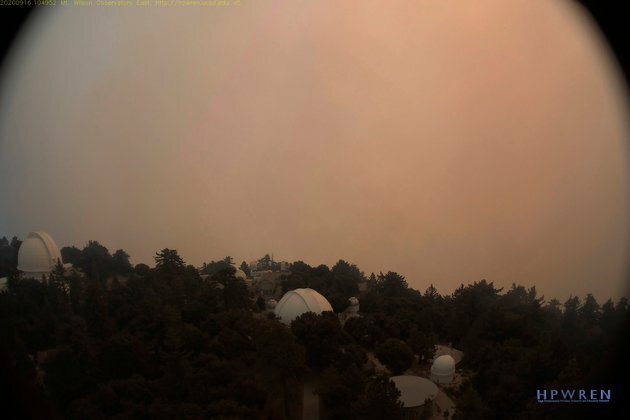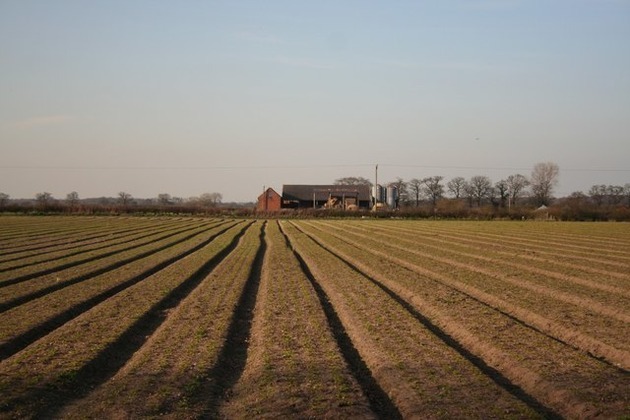Wildfire Smoke a Growing Health Problem
Voice of America
18 Sep 2020, 12:05 GMT+10

The world's worst air this week is not in pollution hot spots like India or China. It's in the western United States, where record-breaking wildfires are blanketing the region with smoke.
Portland, Oregon, has topped the air pollution charts for major cities this week at monitoring company IQAir.com.
The San Francisco Bay area on Thursday emerged from 30 consecutive days under an unhealthy-air alert. It's the longest stretch on record. The previous record was 14 days, also during wildfires in 2018.
From the United States to Brazil to Australia to the Arctic, climate change is helping drive an increase in wildfires and the pollution they generate.
Scientists know air pollution can be deadly. One major study found exposure to fine particles in air pollution, known as PM2.5, is the fifth-leading risk factor for death worldwide.
But studies have looked mostly at lifelong exposure to unhealthy air. Scientists know much less about what lasting impacts to expect from a few days or weeks of breathing wildfire smoke. It's an area of active study, but big gaps remain, experts say.
What's increasingly concerning is that these huge wildfires are no longer isolated incidents.
"We are continuing to see the increase in the duration of these events, the severity of these events and the frequency," said Keith Bein of the Air Quality Research Center at the University of California-Davis.
"The bigger question becomes: [What are the impacts of] being exposed to this every summer for longer and longer periods and higher and higher concentrations?" he said. Those exposures likely add up.
Gases and particles
Smoke from wildfires is made up of gases and particles that can harm health in a number of ways.
The ozone that fires generate irritates the eyes, nose and throat. It can trigger inflammatory responses leading to asthma attacks in sensitive people and impacts on other organs.
But the more insidious effects come from tiny particles 1/30th the width of a human hair. They are known as PM2.5, shorthand for particulate matter that is 2.5 microns in diameter or smaller.
"The reason [PM2.5 is] so damaging to our health is that it's small enough that it can be inhaled, go all the way through to the base of the lungs and cross over into the bloodstream," said Mary Prunicki, director of air pollution and health research at the Sean N. Parker Center for Allergy and Asthma Research at Stanford University. "And from there, we know that the particulate matter can cause damage to multiple organ systems."
Air pollution accounts for one-quarter of all fatal heart attacks and strokes worldwide, 29% of all lung cancer deaths, more than two-fifths of deaths from chronic obstructive pulmonary disease and one in six fatal lower respiratory infections, according to the World Health Organization.
More recently, scientists have been finding links with neurological diseases, including accelerated dementia and Alzheimer's disease.
"I don't think that there's an organ in the body that the air pollution is not affecting at this point," Bein said.
Short term
While these studies have looked at prolonged exposures over years, others have found serious health problems can happen much sooner.
In one study, emergency room visits for heart disease, respiratory problems and strokes, and related conditions went up 15% to 20% on smoky days among adults 65 and older. Another study found increases within an hour of exposure.
The most at risk are the elderly, children, pregnant women and people already dealing with medical problems.
But not everyone is affected. Researchers are following groups of survivors of major California fires, studying how their symptoms from smoke exposure progress months later.
"We have seen that these health symptoms are persisting in some populations far after" the fires, Bein said. "In other populations, they're not."
Studies are under way that aim to answer some of the key questions about how wildfire smoke affects the body and who is most at risk.
"We'll learn a lot about the health effects, unfortunately, from what's going on right now," Stanford's Prunicki said.
 Share
Share
 Tweet
Tweet
 Share
Share
 Flip
Flip
 Email
Email
Watch latest videos
Subscribe and Follow
Get a daily dose of San Jose Sun news through our daily email, its complimentary and keeps you fully up to date with world and business news as well.
News RELEASES
Publish news of your business, community or sports group, personnel appointments, major event and more by submitting a news release to San Jose Sun.
More InformationUS Sports
SectionDiamondbacks reinstate OF Corbin Carroll from IL
(Photo credit: John E. Sokolowski-Imagn Images) The Arizona Diamondbacks reinstated right fielder Corbin Carroll from the 10-day...
After SEC visits, 4-star WR Xavier McDonald picks Sacramento State
(Photo credit: Kirby Lee-Imagn Images) Sacramento State head coach Brennan Marion reached into Southeastern Conference territory...
Houston Texans donate $500K to help flood victims
(Photo credit: Paul Witwer/Standard-Times / USA TODAY NETWORK via Imagn Images) The Houston Texans announced a $500,000 commitment...
Mets signing Italian teenager in franchise first
(Photo credit: Bill Streicher-Imagn Images) The New York Mets are signing Italian pitcher Matteo Marelli, the first European amateur...
WR Kaydon Finley shuns dad's alma mater, picks Notre Dame
(Photo credit: Ronald W. Erdrich/Reporter-News / USA TODAY NETWORK) Four-star wide receiver Kaydon Finley has committed to Notre...
Former NFL LB Bryan Braman battling rare cancer
(Photo credit: Geoff Burke-Imagn Images) Former NFL linebacker Bryan Braman is 'in the fight of his life,' battling a rare and aggressive...
Business
SectionEngine defect prompts Nissan to recall over 443,000 vehicles
FRANKLIN, Tennessee: Hundreds of thousands of Nissan and Infiniti vehicles are being recalled across the United States due to a potential...
Microsoft trims jobs to manage soaring AI infrastructure costs
REDMOND, Washington: Microsoft is the latest tech giant to announce significant job cuts, as the financial strain of building next-generation...
Stocks worldwide struggle to make ground Friday with Wall Street closed
LONDON UK - U.S. stock markets were closed on Friday for Independence Day. Global Forex Markets Wrap Up Friday with Greeback Comeback...
Nvidia briefly tops Apple’s record in AI-fueled stock rally
SANTA CLARA, California: Nvidia came within a whisker of making financial history on July 3, briefly surpassing Apple's all-time market...
ICE raids leave crops rotting in California, farmers fear collapse
SACRAMENTO, California: California's multibillion-dollar farms are facing a growing crisis—not from drought or pests, but from a sudden...
Trump signals progress on India Trade, criticizes Japan stance
WASHINGTON, D.C.: President Donald Trump says the United States could soon reach a trade deal with India. He believes this deal would...













